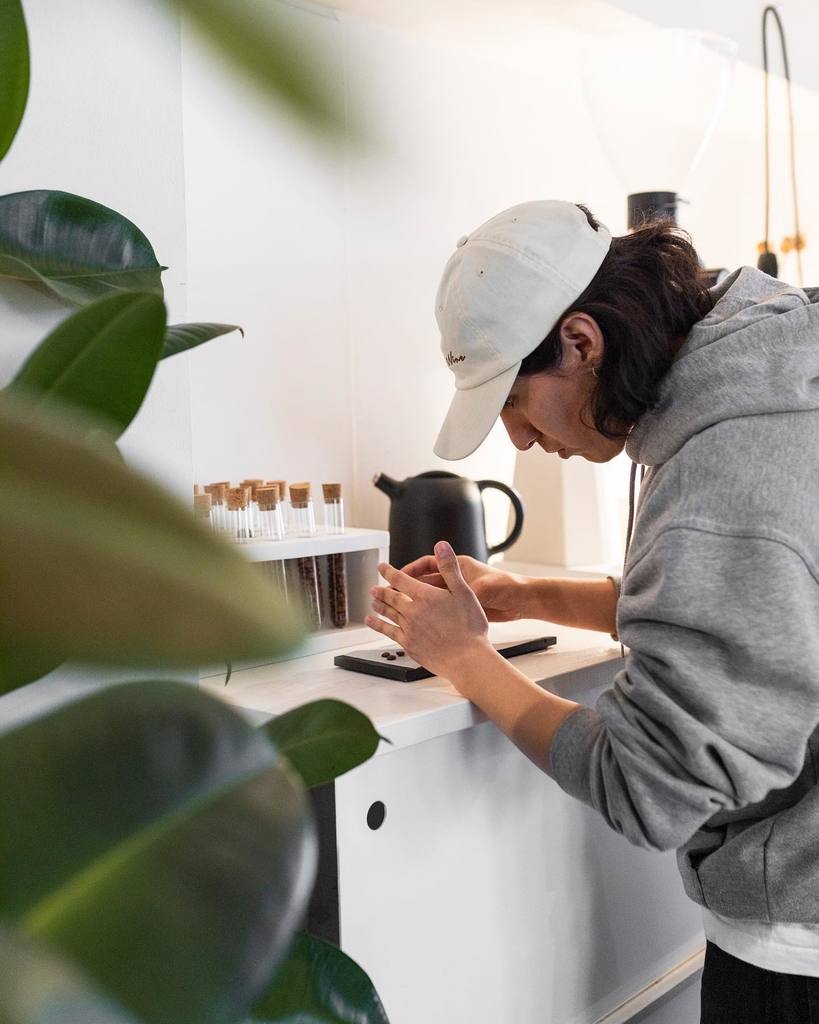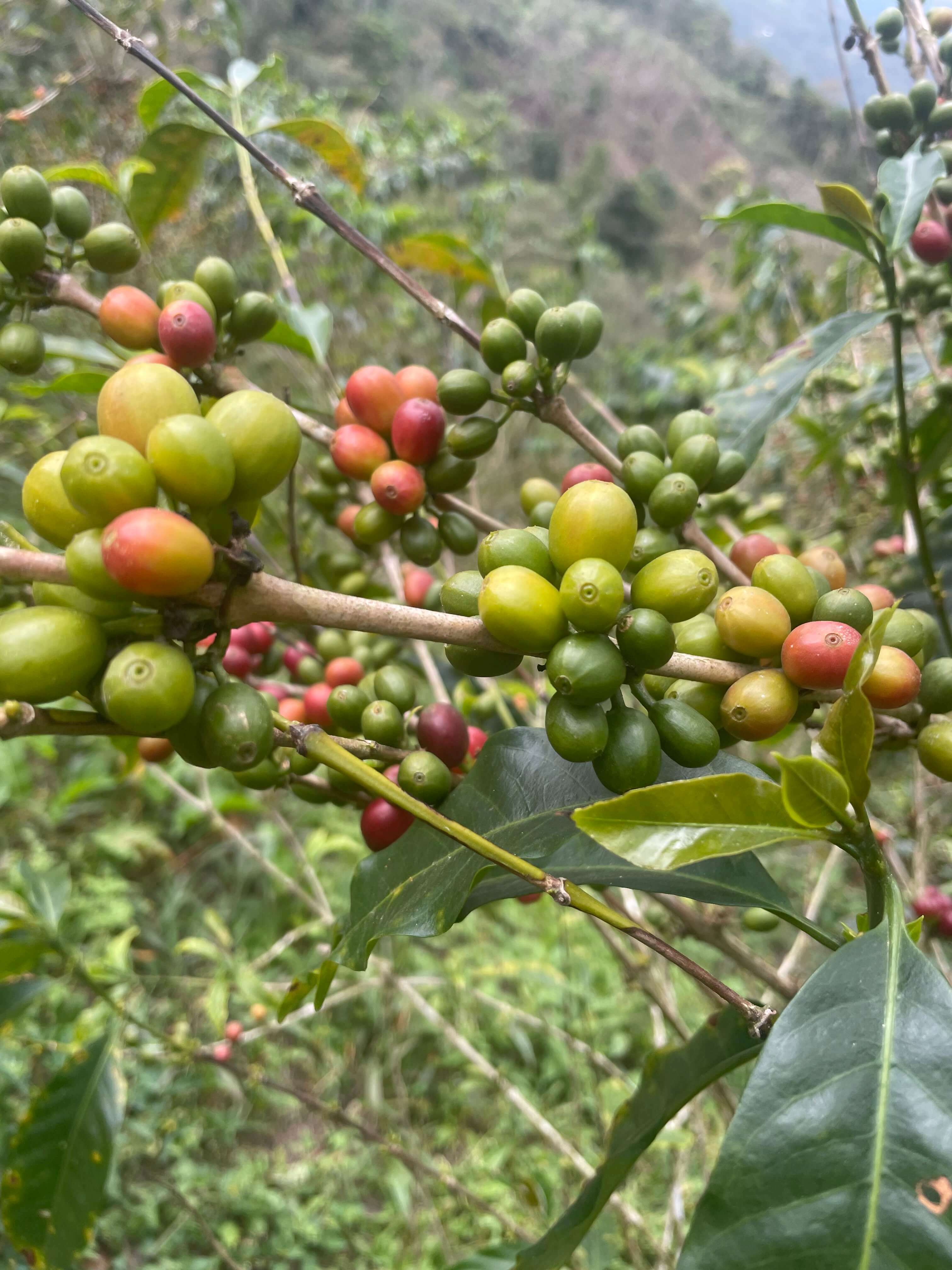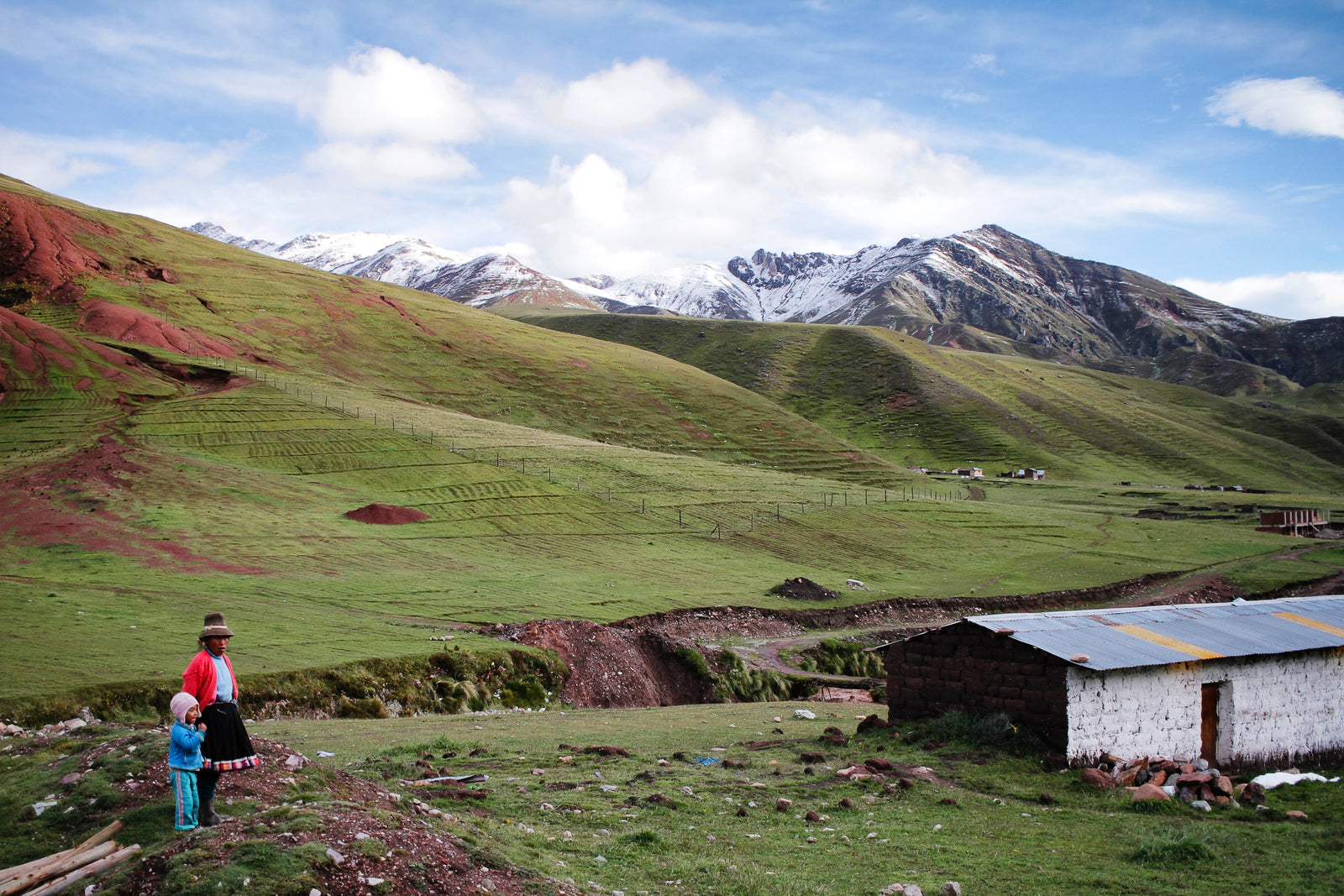Meet Yoshua Sierra from Juicy Project
In this interview, we had a chat with Yoshua over zoom to talk about his love for coffee and where it's taken him so far. Yoshua owns Juicy Project, a coffee shop in Flensburg, Germany where he serves coffee from Europe's top roasters with his partner, Benty who bakes up wonderful and complimentary vegan pastries.
Yoshua Sierra is a coffee professional in every sense of the word. He’s an SCA (Specialty Coffee Assoication) accredited, barista, brewer and roaster. His passion, craft and expertise in coffee challenges the way we can all look at the precious fruit and to respect all those involved who make it possible for us to enjoy the cherished moment it provides us all, daily.
Why did Yoshua decided to work in coffee?
As a child, Yoshua was always told to follow the conventional path; to do this and to do that, but never the other. It's the same with coffee; it tastes bitter, it should taste like this and be served in a certain way.
It wasn’t until he started to try coffee that he realised that it could be complex. Full of flavours and nothing like he expected. This experience filled him with excitement and set him on his way to start learning more about coffee.
As a curious person by nature, he had a ton of questions about how coffee can taste a certain way and be so different. He wanted to understand all of the details; how the grind size impacted the taste, the temperature of the water, the coffee process and what part of Peru the coffee was from.
Crafting the art of coffee
All of this new information spurred Yoshua on to delve deeper into coffee. With the help of his brother Briam, who has a
barista school in Lima, Peru, he started to work as a barista at a few different cafes before settling at a coffee shop that also sold coffee machines.
Yoshua credits his brother for the introduction to coffee, pastry making and in general, gastronomy.
The barista school is where Yoshua started to take his skills to the next level, and is where he received the Speciality Coffee Association certificates for barista, brewing and roasting. This paved the way for him to start learning more from people in the industry and also set himself up for taking his career to the next level.

Visiting coffee farms
While in Peru, he lived on a coffee farm for 2 months. This experience got him closer to understanding how it works at a farm level, from the farm owners and the seasonal workers, to when to pick the cherries and the impact processing can have. In essence, he learned what it really takes to go from farm to cup. Yoshua saw the life of a farm owner: up at 6 am every day, work all day and then go to sleep at 11 pm feeling completely content, happy and fulfilled.
One of the biggest learnings from visiting the farms was to see how important it was to pick the cherry fruit when it is ripe. Knowing when the time is right to do this is quite the skill because of how much impact it’ll have later down the line once it’s then processed, roasted and served.
The knowledge of the farmers
The farmer, Waldermir, impressed Yoshua with how much he knew about the land, the nature that surrounded his farm and how he applied this knowledge to growing better coffee. The farmer couldn't tell Yoshua how the coffee would taste because there were variables out of his control.
That said, he could tell him that the nature that surrounds his farm—the trees, the weather, coffee microclimates, the biodiversity, and the water available—would all work together to produce a high-quality, specialty, cup of coffee.
The seasonal workers and rural communities
On his way to another farm, Yoshua decided to walk through the land. He acknowledged that many people who work on neighbouring farms—season pickers—whether that’s coffee in harvest time or banana and papaya pickers at another time, live in remote areas with little or no electricity/and or water.
Farm investment
Yoshua found between the two farms he visited quite a stark contrast. Because of the lack of investment in one farm, the quality of the coffee will no doubt be impacted, even before it’s roasted or brewed.
He noticed how one farm didn't have the equipment to measure the humidity of the coffee and how the coffee would dry on the patio rather than on raised beds.The farms were all uneven in their drying. This is a clear example of how two neighbouring farms approach their coffee processing differently and would result in flavours unique to the place the coffee grew.
The journey to Europe
Arriving in Bremen, Germany, Yoshua sought after high-quality coffee shops he could work in. He later left Bremen and settled in Hamburg, working at first for a very specialist coffee shop called tornqvist (this is where Mark from Khipu Coffee originally met Yoshua).

This experience working in Hamburg for 2.5 years gave him a new insight into coffee. Everything from working with importers and roasters to serving coffee lovers daily and providing them with an experience far more than just a bitter drink with milk.
The coffee disconnect
One of the stark contrasts that Yoshua learned being in Europe was how very few people care about the process and farming of the coffee fruit. They don't want to know about what the farmers are doing on their farm or how they are processing it. It felt like what it really takes to get quality in the cup was quite far removed from reality. The reality is you can order coffee from importers, bargain for the best prices and choose based on price instead of high quality. Yoshua believes that the only way to understand this is to have been on a farm and see the difference it can make when the farmer goes the extra mile to produce the highest quality coffee. Otherwise, you’ll be left with a coffee that has missed potential, which is why he believes there is a lack of high-quality coffee across Europe.
Favourite coffees

There's no favourite coffee for Yoshua—he believes that you can't judge a coffee alone by its taste. Countries have different conditions, and these elements should be considered when trying a specific origin. For example, if you're trying Ethiopian coffee, you’ll want to consider the high cold mountains of where it comes from and appreciate a flavour indigenous to Ethiopia.
Yoshua does have some memorable coffees that he has tried and they are:
Origin - Colombia
Varietal - Sudan Hume
Farm - Cafe Gran Esperanza
Roasted by -
La Cabra, Copenhagen

Origin - Colombia
Varietal - Geisha
Farm - Diego Bermudez
Process - Lactose Bacteria
Roasted by -
Manhattan, Amsterdam

Origin - Kenyan
Varietal - SL28
Farm - Muygaya
Process - Washed
Roasted by -
Drop Coffee Roasters, Stockholm

What excites you about Peruvian Coffee?
For Yoshua, it’s all about the
coffee regions of Peru. This is what will determine the flavour profile of the coffee, and that’s what excites him.
He likes to look at the neighbouring coffee-producing countries to Peru, and from there get a feel for the flavour. For the north of Peru, you have Ecuador and Colombia close by, so he'd expect to find coffee near this region, for example Cajamarca, to have a more acidic taste with red fruits, citrus and berries.
For central Peru and areas such as Villa Rica and Chanchamayo, he expected a more nutty and sweet coffee flavour, similar to those of neighbouring country, Brazil.
For the south of Peru, Cusco and Puno neighbour Bolivia and here is where the taste can be a bit more Ethiopian-like, with chocolate and tropical stone fruits in the flavour.
Go try?

If you're ever in Hamburg, it's well a day trip to go and see the beauty of Flensburg. You can be guarenteed the highest coffee quality available in Europe ready to be served by the man himself.
You can follow Juicy Project and Yoshua on Instagram here.
All images are from the Juicy Poject Instagram.





